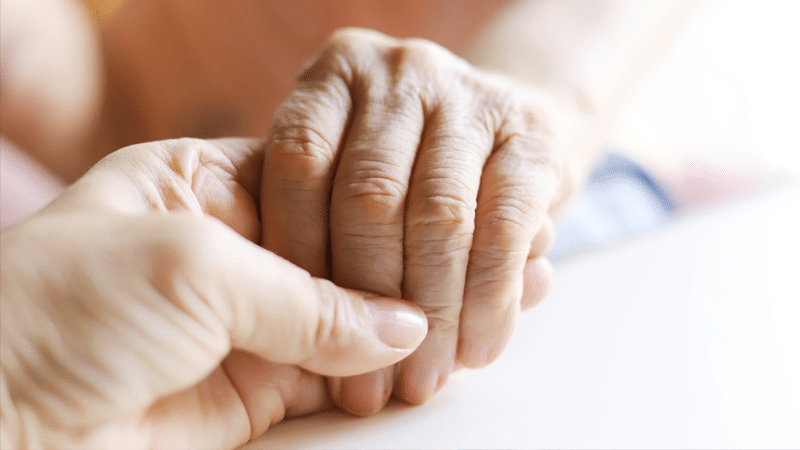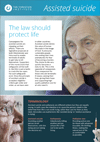Legalising assisted suicide detrimentally affects palliative care provision, a new report has shown.
A study by bioethicist Professor David Albert Jones found “clear evidence” of harm in the quality and provision of end-of-life care following the introduction of assisted suicide or euthanasia in other countries.
In 2022, the UK was ranked top in an international investigation into ‘the quality of death and dying’ in 81 jurisdictions.
Danger
Earlier this year, the House of Commons Health and Social Care Committee published a report on its inquiry into Assisted Dying/Assisted Suicide. But based on his research, Prof Jones –Director of the Anscombe Bioethics Centre in Oxford – contested its statement on palliative care provision.
He observed: “The House of Commons Select Committee did not see evidence to confirm the fears voiced by palliative care associations about a change in the law. However, a fuller scrutiny, including of more recent data, fully vindicates those concerns.It would be extreme folly to jeopardise what has been an international beacon of excellence through insufficient consideration of the danger of proposed legislation.
“What is often called ‘assisted dying’ – that is, euthanasia or assisted suicide – can have a seriously adverse impact on that which is true assistance in dying: palliative care.
“In the United Kingdom, where we pioneered the hospice movement, this is world-leading. It would be extreme folly to jeopardise what has been an international beacon of excellence through insufficient consideration of the danger of proposed legislation.”
Data
In his review, Prof Jones found that between 2012 and 2019 the 20 countries in Western Europe without assisted suicide increased funding for end-of-life care by 25 per cent.
During the same period in Belgium, the Netherlands, Luxembourg and Switzerland – countries where assisted suicide is legal – funding grew by just 7.9 per cent.
He also cited “mounting evidence” that removing end-of-life protections leads to palliative care professionals experiencing “demoralisation”, and that some were even leaving the profession because of pressure to facilitate assisted suicide.
Essential evidence
Prof Jones told The Daily Telegraph: “Many MPs will be informing themselves about assisted dying by reading the recent select committee report.
“It is essential that these MPs recognise that some of the conclusions in the report were based on partial or dated evidence.”
Backing the study findings, palliative care consultant Dr Matthew Doré said: “The committee’s conclusion appears to have overlooked this mounting evidence.
“Jurisdictions with assisted dying consistently show slower progress in palliative care development and growing challenges and harm for patients and professionals.”

Gordon Brown backs support for Royal Commission on end-of-life care
Health Secretary: ‘Assisted suicide could force NHS to reduce services’
Thousands of healthcare professionals urge Parliament not to legalise assisted suicide



